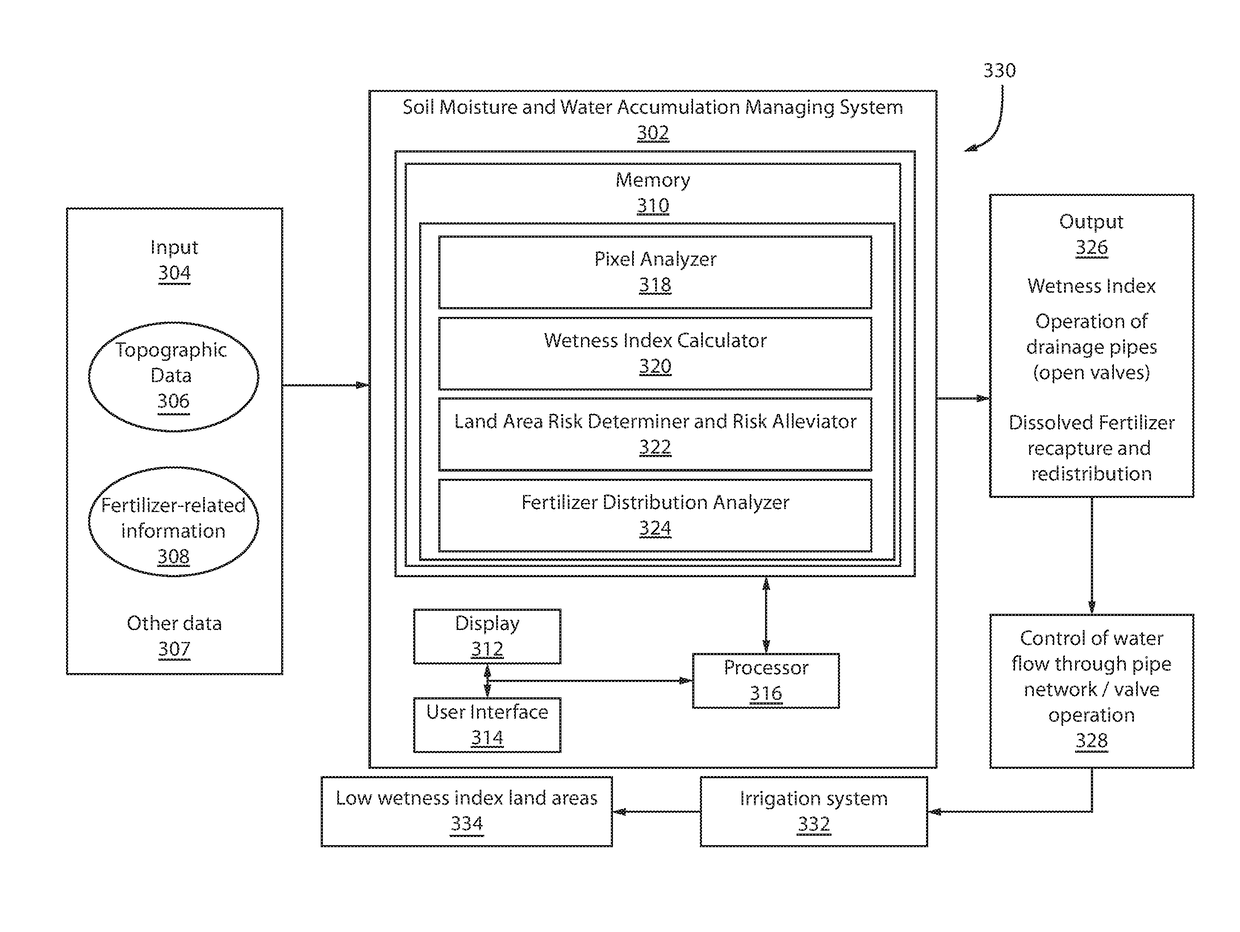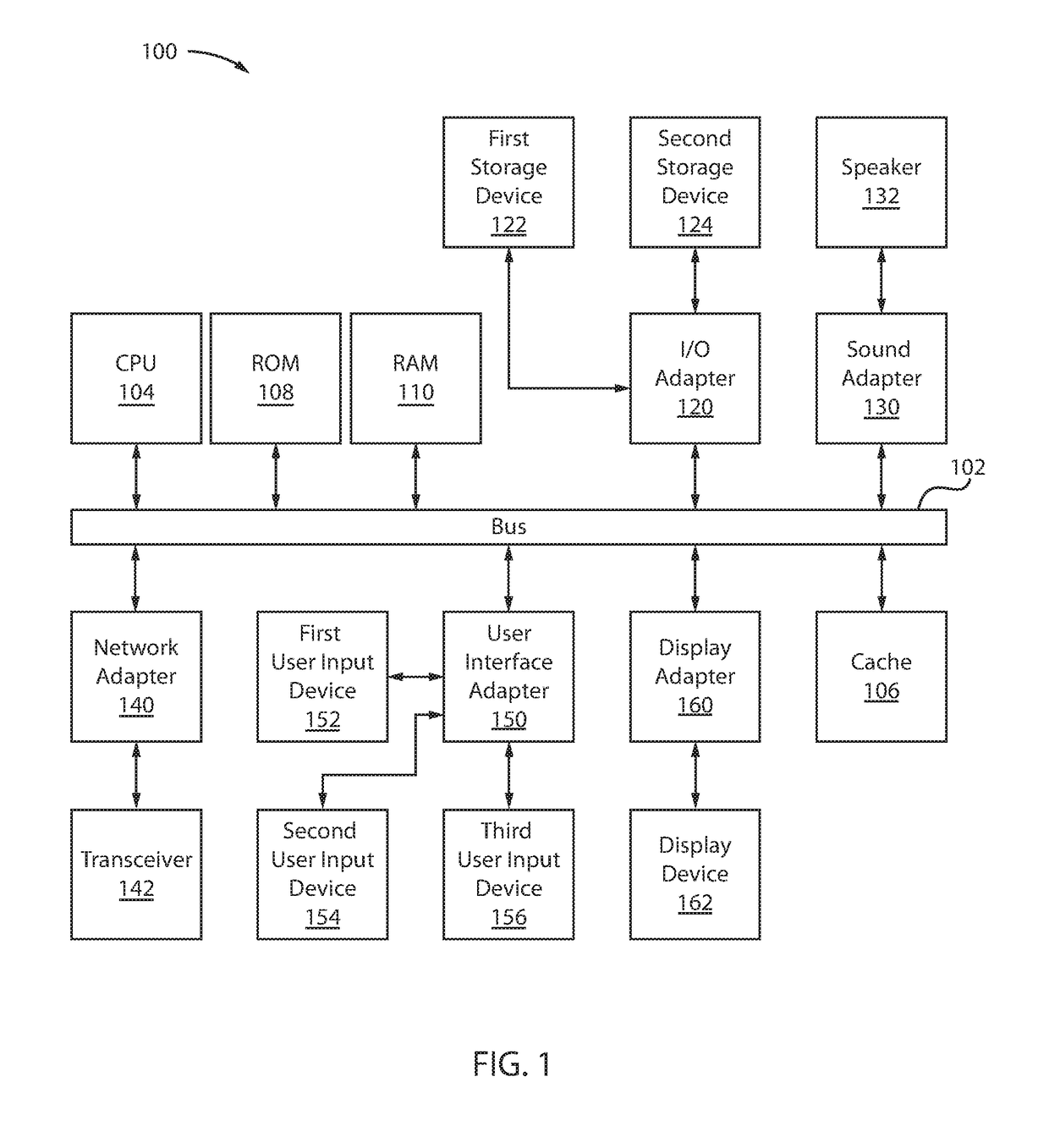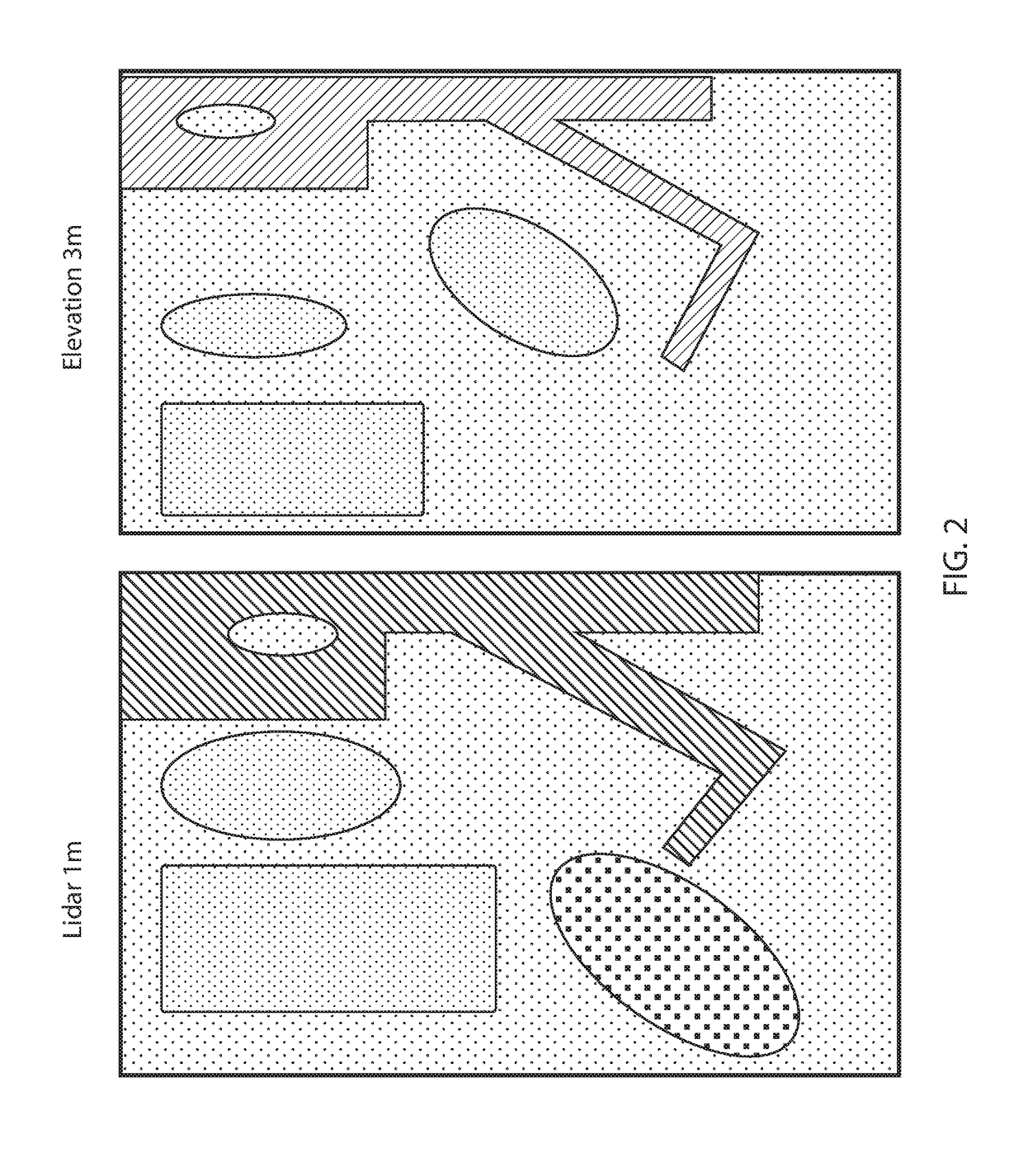Method of controlling soil moisture, water accumulation and fertilizer distribution in land
a technology of soil moisture and water accumulation, applied in the direction of programme control, instruments, sewage draining, etc., can solve the problems of adverse effects on crop yield, crop yield reduction, and crop yield reduction, so as to reduce the risk of accumulating water and improve crop growth potential
- Summary
- Abstract
- Description
- Claims
- Application Information
AI Technical Summary
Benefits of technology
Problems solved by technology
Method used
Image
Examples
Embodiment Construction
[0024]According to an embodiment of the present principles, described is a method in which topology of a plot of land is analyzed and determinations are made concerning the likelihood that water will accumulate on the surface of certain parts of the land and / or whether certain parts are likely to accumulation more water than would be beneficial. Topographic data for a plot of land is obtained. The topographic data may be an image in which the pixels of the image correspond to cells, e.g., discreet portions of land areas that have a size, e.g., an area, that is dependent on the resolution of the image. The slope between two or more adjacent areas of land is determined. Then, a wetness index is determined for the areas of land. If it is determined that, based on the wetness indices, that areas of land are at risk of accumulating water, then action is then taken. For example, a tiling system having a network of interconnected pipes and control valves configured to move water away from ...
PUM
 Login to View More
Login to View More Abstract
Description
Claims
Application Information
 Login to View More
Login to View More - R&D
- Intellectual Property
- Life Sciences
- Materials
- Tech Scout
- Unparalleled Data Quality
- Higher Quality Content
- 60% Fewer Hallucinations
Browse by: Latest US Patents, China's latest patents, Technical Efficacy Thesaurus, Application Domain, Technology Topic, Popular Technical Reports.
© 2025 PatSnap. All rights reserved.Legal|Privacy policy|Modern Slavery Act Transparency Statement|Sitemap|About US| Contact US: help@patsnap.com



